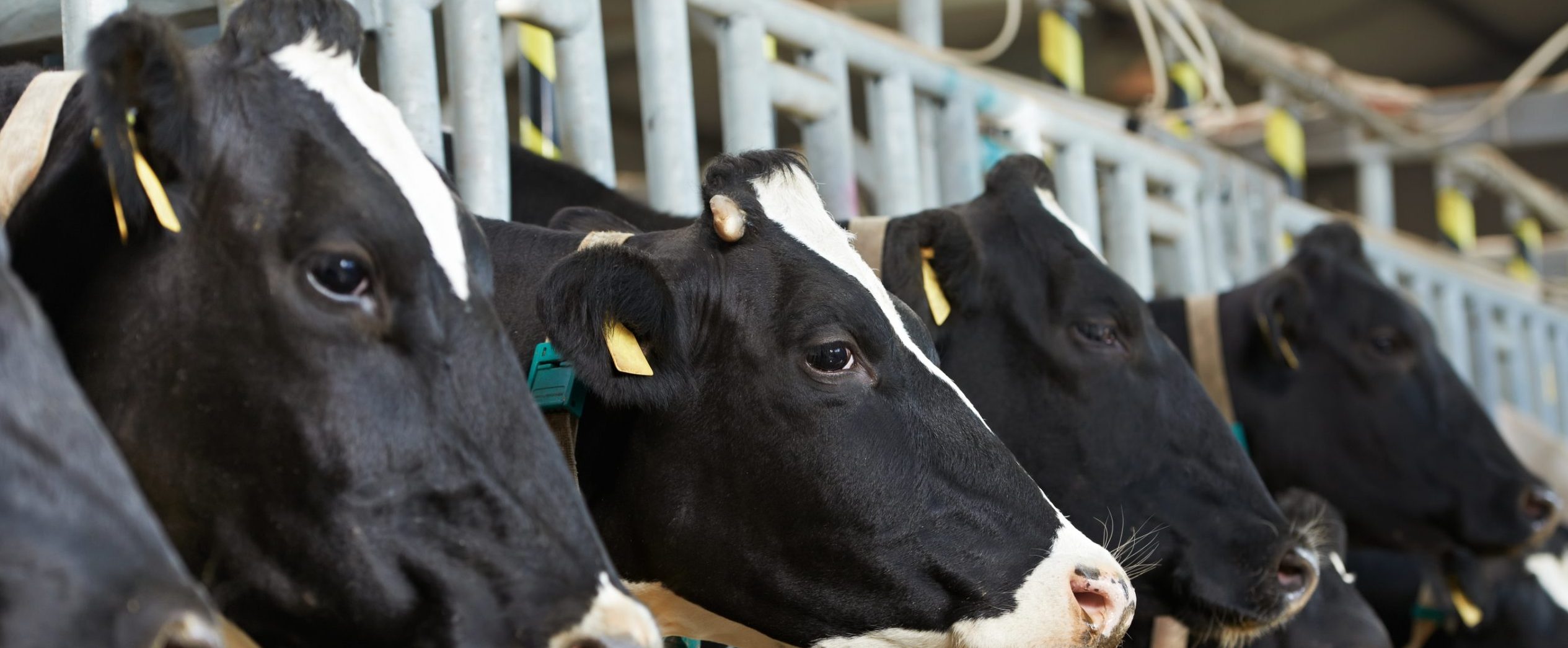 22 Jun 2023
22 Jun 2023
Introduction
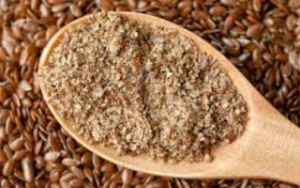 The present study aims to build upon previous research findings by exploring the effects of ground flaxseed (GFX; Linum usitatissimum) supplementation on ruminal microbiota diversity, enteric methane (CH4) emissions, and other relevant parameters in lactating dairy cows fed high-forage diets.
The present study aims to build upon previous research findings by exploring the effects of ground flaxseed (GFX; Linum usitatissimum) supplementation on ruminal microbiota diversity, enteric methane (CH4) emissions, and other relevant parameters in lactating dairy cows fed high-forage diets.
Earlier investigations have demonstrated the linear increase in milk proportions of total n-3 fatty acids and α-linolenic acid (ALA) in dairy cows when incremental amounts of GFX were incorporated into their diets (Resende et al., 2015). It is worth noting that oilseeds like GFX contain polyunsaturated fatty acids (PUFA) that exhibit toxicity towards ruminal methanogens and protozoa (Patra, 2013). Consequently, this toxicity has the potential to reduce enteric methane production in lactating dairy cows.
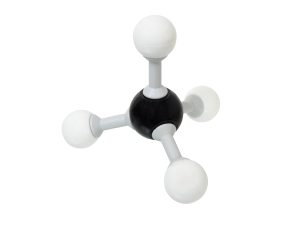
Previous studies by Martin et al. (2016) have observed linear reductions in CH4 production, CH4 yield, and CH4 intensity in dairy cows fed diets supplemented with increasing levels of extruded flaxseed. However, there is a dearth of research specifically investigating the effects of GFX on ruminal microbiota diversity, taxa, and enteric CH4 emissions in lactating dairy cows fed high-forage diets. Additionally, Schroeder et al. (2014) demonstrated varying “in situ” dry matter (DM) degradability rates for different forms of flaxseed, with GFX exhibiting a distinct degradability pattern. These findings imply that the processing method and form of flaxseed fed may have different impacts on ruminal fermentation processes, including methanogenesis, thus warranting further investigation with GFX.
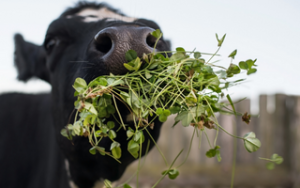
Therefore, the objective of the current study was to evaluate the influence of incremental amounts of GFX on ruminal microbiota diversity and taxa, enteric CH4 emissions, and related parameters in lactating dairy cows fed high-forage diets. By delving into these aspects, the researchers in charge of the study aimed to contribute to the understanding of the potential benefits and mechanisms associated with GFX supplementation.The outcomes of their investigation may have significant implications for the improvement of dairy cow nutrition and the promotion of environmental sustainability.
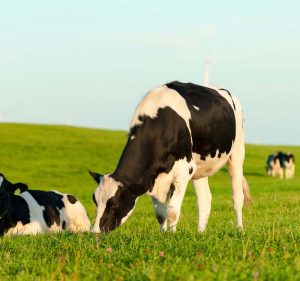
The study
Researchers investigated the impact of increasing levels of ground flaxseed (GFX) on the diversity and relative abundance of ruminal microbiota taxa, enteric methane (CH4) emissions, and urinary excretion of purine derivatives (PD) in lactating dairy cows. The study aimed to explore the potential benefits and effects of GFX supplementation in the cows’ diet.
Materials & Methods
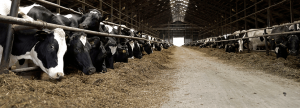
Results
 The study findings revealed that the dietary inclusion of GFX had no significant effect on ruminal microbiota diversity.
The study findings revealed that the dietary inclusion of GFX had no significant effect on ruminal microbiota diversity.
Moreover, a noticeable trend towards a linear reduction (P = 0.055) in enteric CH4 production was observed as the cows consumed higher amounts of GFX. However, there were no significant effects on CH4 yield, CH4 intensity, or the urinary excretion of uric acid, allantoin, and total PD.
Overall, the study suggested that GFX supplementation linearly decreased the relative abundance of Ruminococcus and Clostridium in the rumen, as well as enteric CH4 production. Importantly, there were no indications of negative impacts on CH4 yield, CH4 intensity, or microbial protein synthesis in the rumen, as reflected by the unchanged urinary excretion of total PD.
Conclusions
Source: Abstract taken from “Kleves V Almeida , Feeding incremental amounts of ground flaxseed: effects on diversity and relative abundance of ruminal microbiota and enteric methane emissions in lactating dairy cows, Translational Animal Science, Volume 7, Issue 1, January 2023.”
Subscribe now to the technical magazine of animal nutrition
AUTHORS

Nutritional Interventions to Improve Fertility in Male Broiler Breeders
Edgar Oviedo
The Use of Organic Acids in Poultry: A Natural Path to Health and Productivity
M. Naeem
Synergistic Benefits of Prebiotics and Probiotics in Poultry, Swine, and Cattle
Gustavo Adolfo Quintana-Ospina
Hybrid Rye Potential in Laying Hen Feed Rations
Gwendolyn Jones
A day in the life of phosphorus in pigs: Part I
Rafael Duran Giménez-Rico
Use of enzymes in diets for ruminants
Braulio de la Calle Campos
Minerals and Hoof Health in the Pregnant Sow
Juan Gabriel Espino
Impact of Oxidized Fats on Swine Reproduction and Offspring
Maria Alejandra Perez Alvarado